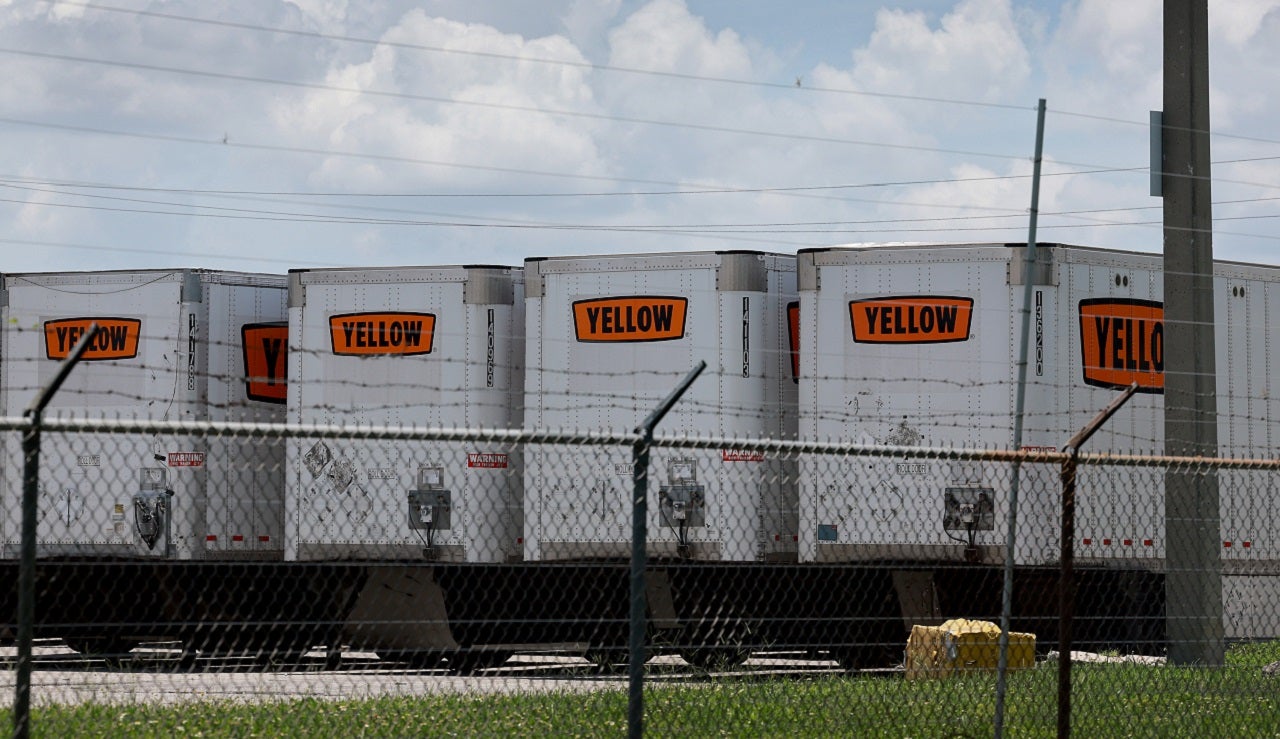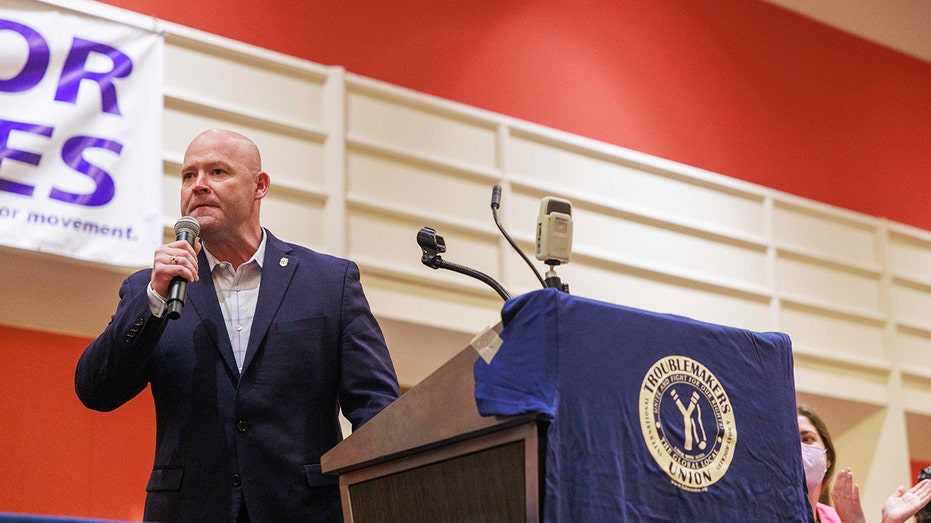Finance
What pushed Yellow trucking company to point of bankruptcy?

U.S. trucking giant Yellow Corp. is widely expected to file for bankruptcy any day now, following reports that the nearly century-old company ceased operations nationwide and began laying off employees over the weekend.
So, what led to its collapse?
Yellow, formerly known as YRC Worldwide Inc., has struggled with financial woes for several years. The company’s acquisitions of other carriers over the past few decades grew it to become the fifth-largest trucking firm in the nation and the third-largest less-than-truckload (LTL) carrier. But the low-cost carrier also struggled with its debt load.
| Ticker | Security | Last | Change | Change % |
|---|---|---|---|---|
| YELL | YELLOW CORP. | 1.76 | +1.05 | +148.97% |
As of late March, Yellow, a $5 billion company, had outstanding debt of roughly $1.5 billion, with $1.3 billion in loans that come due next year, including $729.2 million owed to the federal government.
US TRUCKING GIANT YELLOW SHUTTING DOWN OPERATIONS AMID STANDOFF WITH TEAMSTERS UNION
In 2020, under the Trump administration, the Treasury Department granted the company a $700 million pandemic-era loan on national security grounds. Last month, a congressional probe concluded that the Treasury and Defense Departments “made missteps” in this decision and noted that Yellow’s “precarious financial position at the time of the loan, and continued struggles, expose taxpayers to a significant risk of loss.”
According to Mike Regan, co-founder of freight management firm TranzAct Technologies Inc., Yellow allowed the companies it purchased to largely operate independently, which over the years created significant redundancy in its network.
Yellow CEO Darren Hawkins attempted to reduce that redundancy through a restructuring initiative dubbed “One Yellow.” The Teamsters union – which represents 22,000 of Yellow’s 30,000 employees – agreed to the first phase of the plan but did not agree to the second phase, which the trucking titan insisted was needed for its survival.
The battle between Yellow and the Teamsters continued to intensify.
UPS-TEAMSTERS DEAL THREATENS TO KEEP INFLATION ELEVATED
On June 24, Teamsters General President Sean O’Brien tweeted out a picture of a tombstone with Yellow’s name on it, calling on Hawkins to resign and saying that if the CEO “continues he will single handily (sic) destroy a once honorable company.”
Weeks prior to Yellow’s shutdown, the company’s representatives warned bankruptcy would be inevitable unless it reached a deal with the Teamsters with regard to that second phase.
Yellow sued the Teamsters in June, alleging the labor organization was “unjustifiably blocking” its modernization plans. Then in July, the company notified the Central States Welfare and Pension funds that it would not be making its $50 million required payment, leading the Teamsters to threaten to strike.
“Given the probability of a strike, Yellow acted responsibly and … shifted their attention to clearing freight out of their system in an effort to minimize the damage that a strike would cause,” Regan wrote in a recent blog post. “On July 23, the Teamsters blinked and said there would not be a strike and gave the company an additional thirty days to make the payment. But the damage was done.”
COST ASSOCIATED WITH NORFOLK SOUTHERN’S OHIO DERAILMENT MORE THAN DOUBLES TO $803 MILLION
As a result, Yellow customers fled amid the strike threat, accelerating the cash-strapped company’s death spiral.
But the Teamsters union said the company’s demise was of its own making. The union announced Monday that it was notified Yellow was ceasing operations and filing for bankruptcy.
O’Brien called the news “unfortunate but not surprising,” saying in a statement that “Yellow has historically proven that it could not manage itself despite billions of dollars in worker concessions and hundreds of millions in bailout funding from the federal government.”

But Regan believes the Teamsters played a role in Yellow’s ultimate demise.
“It is clear that the Teamsters have overplayed their hand in opposing Yellow’s efforts to restructure under the One Yellow initiative,” he wrote last week. “Since the Teamsters have representatives on Yellow’s Board of Directors, they had to have known that the One Yellow restructuring initiative was likely the only way the company could be competitive in today’s LTL marketplace.”
“I think they really overplayed their hand with Yellow in light of the fact that they had all the information that the Yellow management team had,” he told FOX Business on Monday. “It blows me away that they were sitting on the board – they had to have known that this was the likely outcome – and they let it happen.”
The Teamsters did not immediately respond to FOX Business’ request for comment on Regan’s remarks.
FOX Business’ Bradford Betz and the Associated Press contributed to this report.
Read the full article here


















